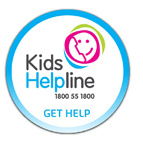Internet Safety: Parents
SextingSexting
Sexting is when sexual photos or videos are shared via mobiles or online posts. If your child has been involved in sexting, there are things you can do to help them manage the situation.
Teens are on show―their mistakes are public
Our children’s mistakes may become public fodder. This is not because we have raised them badly, but simply because the technology allows it. This is quite different to our childhood.
So you got naked online
Managing sexting with your teen. This resource helps teens understand what to do when their naked image is posted online.
Aussie teens and sexting info-graphic
What are Australian teens doing with sexting and naked pictures. This info-graphic lays out some interesting findings.
Why did they sext?
Researcher Danah Boyd says teens share images for all kinds of reasons…to express developing sexuality, to impress or be liked and to keep up with what they think is the norm.
Most images are shared within relationships and most teens don’t expect images to be shared with others, with the exception of a few who hope they will gain fame.*
*www.danah.org/papers/talks/2011/RWW2011.html
How do I support them?
If their image has been viewed by others they may be publicly bullied and have sexually inappropriate comments made about them by friends and strangers, including adults.
Providing support will help buffer the impact of bullying. Keep them connected to trusted friends and family online and offline. Stop them reading offensive comments. Keep an eye on them and get others to do so as well. If you are worried or your child is vulnerable, seek professional support.
Minimising the spread of images
Unfortunately once shared online, many images end up on sites that are used for adult gratification. Act fast to help prevent this. If schoolmates are involved the school may be able to help.
Help your teen identify where the images might be and send take-down requests to all sites.
Send messages to all kids who may have received an image asking them to delete immediately.
Help them block any people who make offensive comments about them and report them to the police if necessary.
The law
While it can be a crime to take and share sexual images of people under 18, the police don’t usually prosecute if there is no harm to those involved.
They are more likely to get in trouble with the law if they have deliberately shared a photo or video of someone without their consent, especially if they meant to embarrass or humiliate them.
If the police get involved they will want to know how the image/video was made and where it might have been sent/posted. They will want to know who was involved and whether there was consent from all involved. Help your child put together a record of what happened and where images and videos might be.
Warning signs – don’t ignore them
- If your child’s behaviour changes at home and/or school you should talk to them. Examples of worrying changes include seeming less interested in things they used to like, not connecting with friends as they used to, seeming more withdrawn, appearing unhappy a lot of the time, changed eating and/or sleeping (more or less of either). If your child seems to think poorly of themselves act straight away. Seek professional advice if necessary including through the school counsellor, your GP or a psychologist.
- If your child has particular vulnerabilities, be vigilant about their contacts offline and online. Help them join groups out of school where they can find friends and support. Talk to the school and make sure they are supported.
- Kids Helpline provides free online and phone counselling for children and young people up to 25 years of age. www.kidshelpline.com.au / 1800 55 1800
- Headspace and Lifeline on 13 11 14 also provide free counselling and support.
Where do I go for help?
School support
If you are concerned about your child’s involvement in a sexting incident, their school may be able to help. For more information, contact your child’s school.





